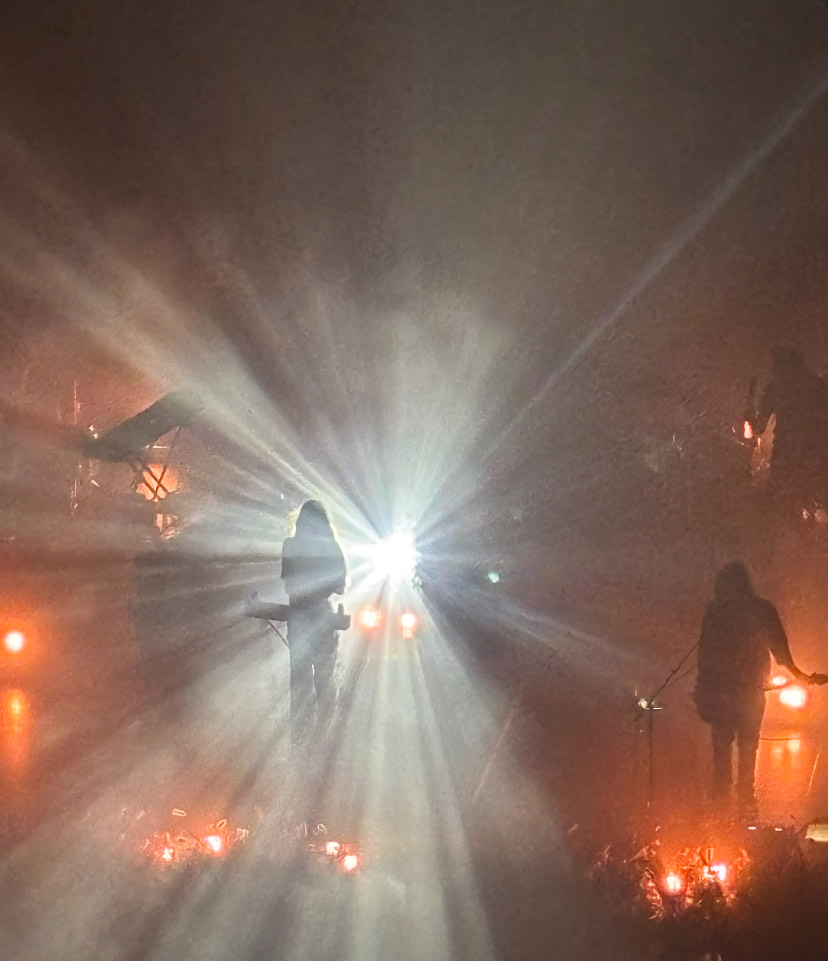The transition from soul to neo-soul was originally spurred by a marketing incentive. As the Motown tradition was losing its flair with the aging of its legends and the rising popularity of radio-ready R&B, it was a crucial time for rediscovery and restructuring. And so, initially with the release of D’Angelo’s “Brown Sugar,” the old categorization was rechristened as ‘neo-soul’.
The objectives were the same, the instrumentation the same — effectively no major differences aside from hip-hop adjacent drum loops. What had changed was the generation. It was a familiar body given a new face, a younger sheen for younger fans hungry for their own equivalents to the masters of the 60s and 70s.
Soul, the parent, boasted Marvin Gaye, Minnie Riperton, The Main Ingredient and the 5th Dimension. Neo-soul, the child, includes Erykah Badu, Maxwell, Ms. Lauryn Hill, even an artist acknowledging the DNA of his origins with the name Musiq Soulchild.
The current phase of the genre is the grandchild, perhaps more accurately described as ‘neo-neo-soul’. Repeating the changes of times past, the babies of the 21st century are claiming their soul superheroes with the likes of The Internet, Solange, Lianne La Havas and Hiatus Kaiyote. Their music features lush compositions and poetry focused on natural wonder that provides a peace of mind to the listener like the refreshment of an overflowing spring. The eternal flame of what makes soul so beloved stays well lit and tended through the guidance of these artists.
Entering the mix of the new generation is Cleo Sol. The singer-songwriter, raised by jazz musicians in the Ladbroke Grove area of West London, initiated her journey in 2008 as a featuring vocalist for Tinie Tempah on her single “Tears”. Following a long hiatus in the middle of the 2010s, she re-emerged in 2018 with an EP called “Winter Songs.”
Her identity since has been inseparable from the touch of her collaborator Inflo, who has produced all of her studio albums singlehandedly and introduced her into the English R&B collective Sault. The partnership formed between the two has attracted listeners through songs with easy going rhythms and irresistible basslines, perfect for slow days and quiet nights.
She has arrived on the heels of her 2020 release “Rose in the Dark” and 2021’s “Mother,” to connect the three eras of soul with a stronger link than ever before. She delivers a decisive two-album package that proves she is a soul musician at the highest level, regardless of the decade, trends or context. The British vocalist breaks through by tearing back every brick in the wall.
“Heaven” and “Gold,” released within two weeks of each other in September 2023, are intent on quality over quantity and personal songwriting over disingenuous hit-chasing. They mold two experiences that weave seamlessly between each other, as well as standing as pillaring achievements on their own.
The song “Life Will Be” could easily be mistaken for a cut track from Marvin Gaye’s “What’s Going On,” from the backing vocals that are instantly reminiscent of “What’s Happening Brother.” The title track, “Gold,” has a ricocheting bassline that produces a heart-raising effect that could have been the making of Raphael Saadiq of Tony! Toni! Tone! in the late 90s. “There Will Be No Crying” and “Airplane” have the same restrained gentleness that Lianne La Havas showcased on “Lianne La Havas.”
Cleo celebrates the heritage of soul from every corner, by constructing robust walls of sound that are achieved through careful studio performances and perfectionist sound design. As the producer, Inflo deserves his flowers many times over for the clarity he contributes to Cleo’s creative voice.
Cleo Sol does not make these kinds of connections to be derivative. An artist this close to her influences might fall into the dangerous territory of making something that bores with its stale repetition or exceedingly familiar melodies and rhythms. She avoids this mistake with the overwhelming amount of life in every instrumental, from the bouncing vocal inflections on “Miss Romantic,” to the pounding claves on “Nothing on Me” and the descending high octave of the piano on “In Your Own Home”. She is not falling behind her contemporaries, but rushing past them fearlessly. She adds terrific personality and perspective from the healing spell of her lyrics.
The albums’ shared theme of self-love shines on the aptly named “Self” from “Heaven” and “Life Will Be” from “Gold.” She sings to God on the former, asking for a higher power to “save me from myself/be gentle with myself.” On the latter, she sings to herself and the listener, hoping that “just you believe in you.”
Though at first glance contradictory, they are elements of the process that Cleo Sol documents over the course of both albums. It’s never one cause that leads to a sought-after inner peace, nor is it one cause that leads to the disruption of the self. Her intention in writing songs dutiful to God, alongside love letters to the human experience, unmasks the difficulty of separating true love and true healing from confusion. The response comes not just from loving the self, not just from loving God, not just being dependent on another, but opening the soul to all three powers.
That has been the traditional essence of soul music in its many forms since its inception. It was as essential 60 years ago in the first years of Motown as it is today. And when a musician is capable of relishing that message through a textured history of the genre in the space of her own terrific presentation, we as listeners and humans are gifted with something invaluable: pure love, straight from the soul. Cleo Sol just gave that gift twice over.







